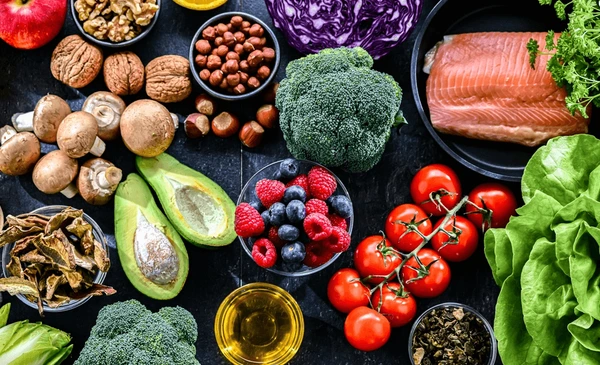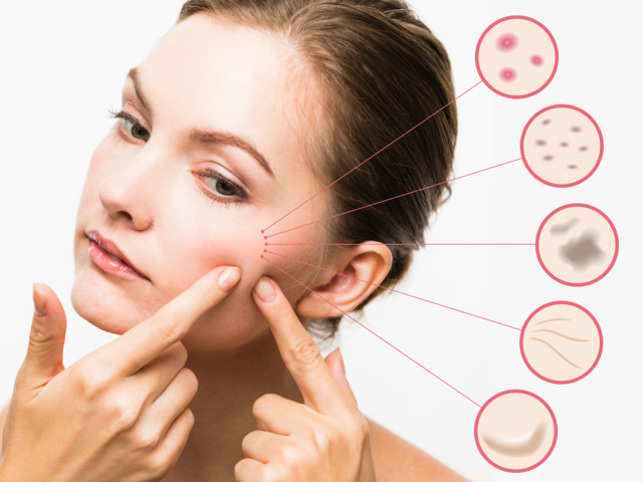ANTI-INFLAMMATORY FOODS FOR HEALTHY GLOWING SKIN: A DERMATOLOGIST’S PERSPECTIVE FOR INDIAN SKIN
- August 7, 2025 at 9:06 pm
- Skin Care,Anti ageing,Health,Food

Skin is the body’s largest organ,
and its health is directly linked to our internal well-being. While topical
skincare treatments, medical procedures, and sun protection are vital for skin
maintenance, true radiance begins from within. At
Elan Skin Care Clinic in Navi Mumbai, we consistently educate our
patients on how dietary habits influence the skin. Chronic inflammation, often
triggered by poor lifestyle choices and suboptimal nutrition, is a key
contributor to various skin issues such as acne, dullness, premature aging, and
eczema.
In Indian skin types, which are
more prone to post-inflammatory hyperpigmentation and sensitivity, inflammation
can linger longer and result in uneven tone and textural concerns. One of the
most effective long-term strategies for skin health is incorporating
anti-inflammatory foods into the daily diet. These foods not only reduce
systemic inflammation but also provide essential nutrients that support skin
repair, collagen production, and protection against environmental damage.
Below
is a comprehensive guide to anti-inflammatory foods that promote healthy,
glowing skin — curated specifically for the Indian context.
1. Turmeric
Turmeric is a cornerstone of
Indian cuisine and traditional medicine. Its active compound, curcumin,
possesses powerful anti-inflammatory and antioxidant properties. Curcumin helps
modulate inflammatory pathways in the body and supports skin healing. Consuming
turmeric with black pepper enhances its absorption. Add a pinch of turmeric to
warm milk or incorporate it into curries for daily benefit.
2. Fatty Fish
Fatty fish such as Indian salmon,
mackerel, and sardines are rich in omega-3 fatty acids, particularly EPA and
DHA. These essential fats help reduce inflammation, regulate oil production,
maintain skin hydration, and protect against sun damage. Omega-3s also support
the integrity of the skin barrier and help in the management of inflammatory
skin conditions such as psoriasis and acne.
3. Leafy Greens
Dark green leafy vegetables such
as spinach, fenugreek, and amaranth are abundant in vitamins A, C, and K, as
well as folate and iron. They contain polyphenols and antioxidants that
neutralize free radicals and reduce oxidative stress, which is a common trigger
for skin aging and dullness. Regular intake of leafy greens supports
detoxification and collagen synthesis.
4. Berries and Seasonal
Fruits
Berries such as strawberries,
blueberries, and Indian gooseberries are rich in vitamin C and flavonoids,
which help protect the skin from oxidative damage and promote a youthful glow.
Indian seasonal fruits like papaya, guava, and pomegranate are excellent
sources of skin-boosting antioxidants and are particularly helpful in reducing
inflammation and pigmentation.
5. Nuts and Seeds
Almonds, walnuts, flaxseeds, and
chia seeds are potent anti-inflammatory foods that are also rich in vitamin E,
selenium, and healthy fats. These nutrients protect skin cells from oxidative
stress, improve elasticity, and help in tissue repair. Seeds like flaxseed also
provide plant-based omega-3s which benefit individuals who do not consume fish.
6. Whole Grains
Refined carbohydrates can elevate
insulin levels and promote inflammation, often worsening acne and other
inflammatory skin conditions. Whole grains like brown rice, quinoa, and millets
such as ragi and jowar are low-glycemic alternatives that help stabilize blood
sugar and reduce skin flare-ups.
7. Green Tea
Green tea is a well-studied
anti-inflammatory beverage that contains catechins, particularly
epigallocatechin gallate. These compounds help reduce redness, control sebum
production, and protect against UV-induced skin aging. Drinking two to three
cups of green tea daily can provide both systemic and skin-specific benefits.
8. Yogurt and Fermented
Foods
Gut health plays a crucial role
in inflammation and skin health. Probiotic-rich foods such as yogurt, fermented
rice, buttermilk, and pickled vegetables support the gut microbiome. A balanced
gut flora reduces systemic inflammation and has a positive impact on chronic
skin conditions like rosacea and atopic dermatitis.
9. Colourful Vegetables
Vegetables like carrots, bell
peppers, sweet potatoes, and pumpkins are loaded with beta-carotene and other
carotenoids which convert into vitamin A in the body. These compounds enhance
skin tone, reduce dryness, and protect against environmental stressors. A diet
rich in natural colors ensures a full spectrum of micronutrients essential for
skin vitality.
Conclusion
Diet
is a foundational pillar of skincare, especially for individuals with
inflammation-prone or sensitive skin types. At Elan Skin Care Clinic, we
believe that nutritional intervention should complement professional
dermatological care. A diet rich in anti-inflammatory foods helps balance
internal systems, supports skin regeneration, and promotes a radiant,
even-toned complexion.
If
you are struggling with recurring skin concerns or want to adopt a more
holistic approach to skincare, we encourage you to consult with our dermatology
team for personalized dietary and skin health guidance.
Consult with Our Experts
For personalized skincare advice and treatments during the
monsoon, book a consultation with our experienced dermatologists.
ELAN SKIN CARE CLINIC
Ground Floor,
Ekdant CHS, Shop No 4 and 5,
Plot 53 and
54, Sector-19, Kharghar,
Navi Mumbai,
Maharashtra 410210
Phone: 099200 16171
Website: Website: www.elanskincare.in
Eat smart, glow naturally. Healthy skin truly begins from
within.
Author Details

I am a professional blogger interested in everything taking place in cyberspace. I am running this website and try my best to make it a better place to visit. I post only the articles that are related to the topic and thoroughly analyze all visitors’ requests to cater to their needs better.
Most Popular Posts

- October 26, 2018
- Botox
5 REASONS TO CONSIDER BOTOX INJECTIONS TO IMPROVE YOUR FACIAL
APPEAR
